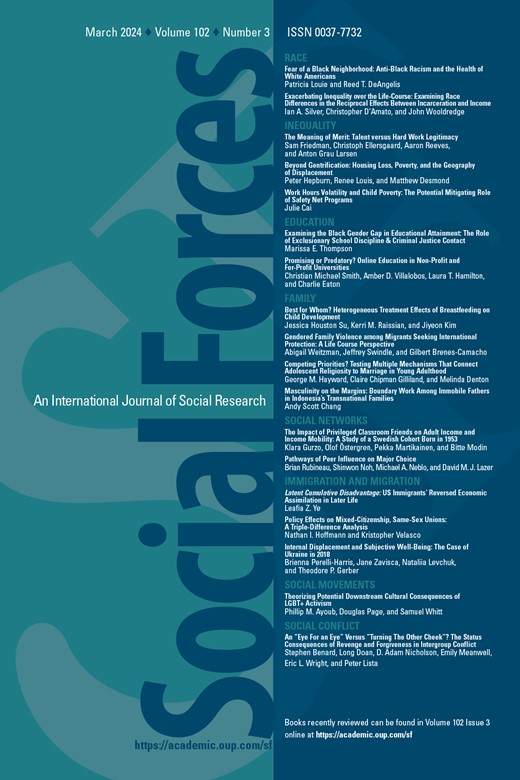An “Eye For an Eye” Versus “Turning The Other Cheek”?
An “Eye For an Eye” Versus “Turning The Other Cheek”?
- Stephen Benard, Long Doan, D Adam Nicholson, Emily Meanwell, Eric L Wright, Peter Lista
- Publication Date
May 30, 2023 - Website
- Oxford Academic
Conflict between groups plays a powerful role in shaping social interaction within groups. Within groups, social status—respect, prestige, and deference—organizes, motivates, and stratifies social interaction. Yet, studies exploring how conflict between groups shapes social status within groups are relatively rare. We argue that intergroup conflict creates opportunities for individuals to gain or lose status by demonstrating group commitment. We examine two contrasting intergroup behaviors—revenge and forgiveness—and evaluate the idea that these behaviors will be viewed as status-worthy to the extent that they are perceived to signal group motivation. Furthermore, we test the hypothesis that avengers and forgivers gain status by offering group-motivated accounts of their behavior. Pairing an original national probability sample with an experimental survey design, we examine how avengers and forgivers are viewed in everyday conflicts across three widely held identities: national identity, political partisanship, and sports team fandom. We find that Americans perceive intergroup forgiveness as more status-worthy, and a stronger indicator of group motivation, than intergroup revenge. In open-ended survey questions, forgiving ingroup members were described as more status-worthy, competent, and warm, and less dominant than their vengeful counterparts. However, we find little evidence that individuals can directly gain status by claiming that their actions are motivated by concern for the group. Our work speaks to theories of conflict, identity, and social status. More broadly, understanding how Americans value intergroup revenge and forgiveness offers insight into the frequency and intensity of identity-based conflict in contemporary American society.
 The College of Arts
The College of Arts